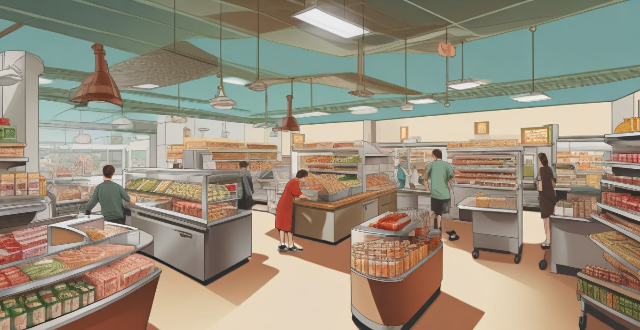Working in the fast food industry has both advantages and disadvantages. On the positive side, it provides flexible schedules, part-time opportunities, low barriers to entry, comprehensive on-the-job training, potential for career advancement, and transferable skills. However, there are also downsides, including limited earning potential, lack of benefits, high stress levels due to a fast-paced environment and customer interactions, as well as limited career growth opportunities due to market saturation and repetitive work. It's important to consider both aspects when deciding if working in this industry aligns with your career goals and lifestyle needs.

Pros of Working in the Fast Food Industry
Flexibility and Availability
- Flexible Schedules: Many fast food jobs offer flexible schedules, allowing employees to work around their school or personal commitments.
- Part-time Opportunities: The industry is known for part-time job availability, making it easier for students or those with other jobs to find work.
No Specialized Skills Required
- Low Barrier to Entry: Most fast food positions do not require specialized skills or extensive experience, making it accessible for a wide range of individuals.
- On-the-Job Training: Comprehensive training programs are typically provided by employers, ensuring that even those without prior experience can learn and perform well in their roles.
Potential for Growth
- Career Advancement: There is potential for career advancement within large chains, as employees can move up from entry-level positions to management roles.
- Transferable Skills: The customer service and teamwork skills gained in a fast food environment can be valuable in various industries.
Cons of Working in the Fast Food Industry
Low Wages and Benefits
- Limited Earning Potential: Fast food jobs often pay minimum wage or slightly above, which may not be sufficient for financial stability.
- Lack of Benefits: Many entry-level positions in the fast food industry do not come with comprehensive benefits packages, such as health insurance or retirement plans.
High Stress and Fast Pace
- Fast-Paced Environment: The nature of fast food service demands quick thinking and efficiency, which can lead to high stress levels for employees.
- Customer Interactions: Dealing with difficult customers or handling complaints can add to the stress of working in this industry.
Limited Career Growth Opportunities
- Saturated Market: With numerous fast food establishments, competition for higher positions can be fierce, limiting opportunities for advancement.
- Repetitive Work: The repetitive nature of some tasks in the fast food industry can lead to boredom and a lack of motivation over time.
In conclusion, while working in the fast food industry offers flexibility and accessibility, it also presents challenges such as low wages, limited benefits, and a fast-paced work environment. It's essential to weigh both the pros and cons before deciding if it's the right fit for your career goals and lifestyle needs.